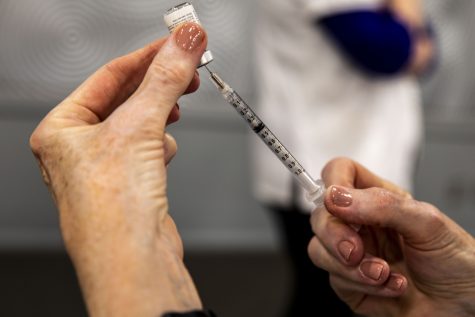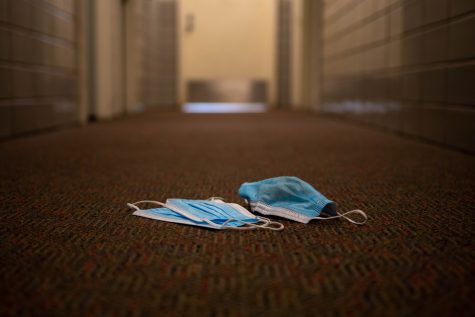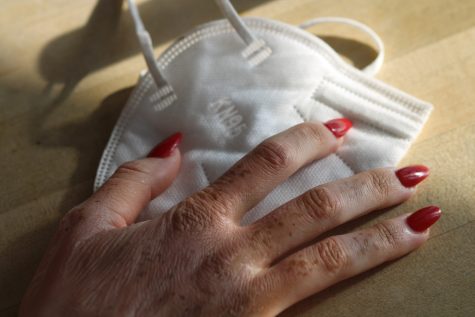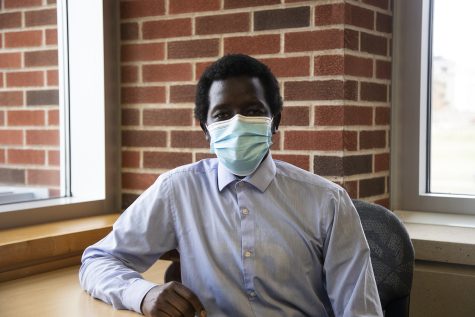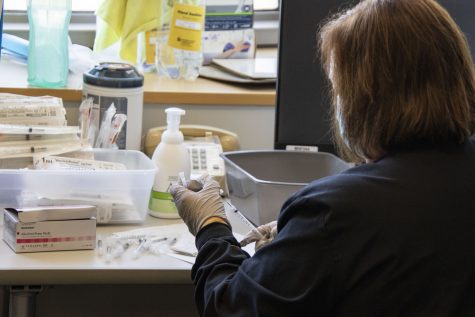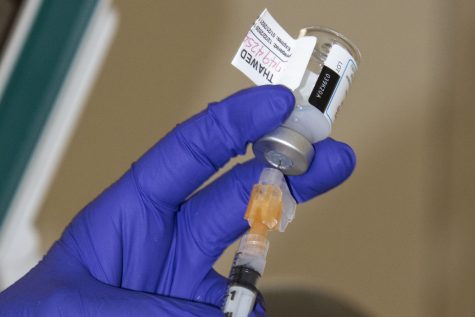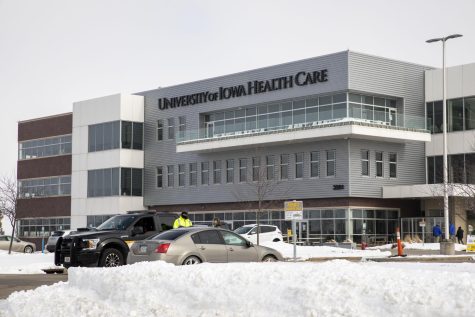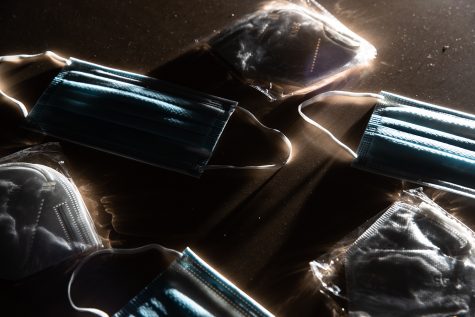UI collaborates with University of Georgia to develop MERS — a potential COVID-19 vaccine
University of Iowa Hospitals and Clinics is seen on Sept. 17, 2018.
April 7, 2020
The University of Iowa and University of Georgia have teamed up and developed a vaccine that protects mice against MERS, which is closely related to the virus that causes COVID-19, UI Health Care announced Tuesday.
This, according to a news release, may be a promising step toward developing a vaccine against COVID-19, the disease caused by the novel coronavirus, that could be tested in people.
According to the release, the vaccine was an innocuous parainfluenza virus, that caused the mice to produce both antibodies and protective T cells. The release stated it was most likely the T cell response in mice lungs that provided the protective effect.
The release stated that the vaccine was a good platform for vaccine development against COVID-19.
According to the release, MERS is deadlier and around one-third of those infected die from it, but there have only been 2,494 cases of the strain since 2012. COVID-19, on the other hand, has caused over 1.25 million confirmed cases since its origin in Wuhan, China in late 2019 and 70,000 have died from it, according to the release.
The research team that developed this vaccine was led by UI pediatrics Professor Paul McCray and Biao He from the University of Georgia College of Veterinary Medicine.
“Our new study indicates that PIV5 may be a useful vaccine platform for emerging coronavirus diseases, including SARS-CoV-2, the virus causing the ongoing COVID-19 pandemic,” McCray said. “Using the same strategy, vaccine candidates based on PIV5 expressing the spike protein of SARS-CoV-2 have been generated. We are planning more studies in animals to test the ability of PIV5-based vaccines in preventing disease caused by SARS-CoV-2.”
The research was funded partially by grants from the National Institutes of Health and the Cystic Fibrosis Foundation, according to the release.
In addition to this research, UI Hospitals and Clinics has taken other steps to discover and utilize new forms of treatment or find a vaccine.
UIHC announced Monday it is participating in an international clinical trial for remdesivir, an antiviral drug to treat COVID-19. Around 70 locations around the world are participating in the trial to test remdesivir.
Participants must be over the age of 12, be hospitalized with confirmed COVID-19, have evidence of lung infection, have no underlying kidney or liver problems, and cannot be pregnant or breastfeeding.
UI Health Care officials have also shared recently they’re in the approval process to offer convalescent plasma treatment, where health-care workers use antibodies from recovered COVID-19 patients to treat those who are currently hospitalized with the virus.





